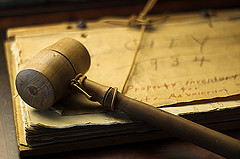 A few days ago, I attended oral arguments before the First Circuit Court of Appeals in the case of Joel Tenenbaum, a graduate student being sued by various record labels for sharing music files via a peer-to-peer service over the Internet (Sony v. Tenenbaum, docket available here). I’ve already written up some of my thoughts about the possible outcome of Joel’s lawsuit over at my regular blog, Legally Sociable.
A few days ago, I attended oral arguments before the First Circuit Court of Appeals in the case of Joel Tenenbaum, a graduate student being sued by various record labels for sharing music files via a peer-to-peer service over the Internet (Sony v. Tenenbaum, docket available here). I’ve already written up some of my thoughts about the possible outcome of Joel’s lawsuit over at my regular blog, Legally Sociable.
Here, I’d like to expand my analysis somewhat to cover Tenenbaum’s broader implications. Many CMLP blog readers may be asking themselves, “So what? What could swapping MP3’s on the Internet possibly have to do with the activities of citizen journalists?”
Under an ideal intellectual property regime, the answer would doubtless be “very little.” Non-commercial use of music for personal entertainment bears little logical resemblance to news reporting, analysis, and advocacy. One might reasonably imagine that IP law treats P2P music downloading differently from blogging about the news.
Unfortunately, in the real world, the law ends up treating blogging almost exactly like file sharing because both activities primarily fall within the purview of copyright law. Moreover, 17 U.S.C. § 504(c) provides extremely flexible statutory penalties “as the court considers just.”



 Social media are abuzz about English Premier League footballer
("soccer player" to us Yanks) Ryan Giggs, who has obtained an order from a British
court requiring Twitter to reveal the identity of various tweeters who
identified him as having had an affair with model and Big Brother
contestant Imogen Thomas.
Social media are abuzz about English Premier League footballer
("soccer player" to us Yanks) Ryan Giggs, who has obtained an order from a British
court requiring Twitter to reveal the identity of various tweeters who
identified him as having had an affair with model and Big Brother
contestant Imogen Thomas.

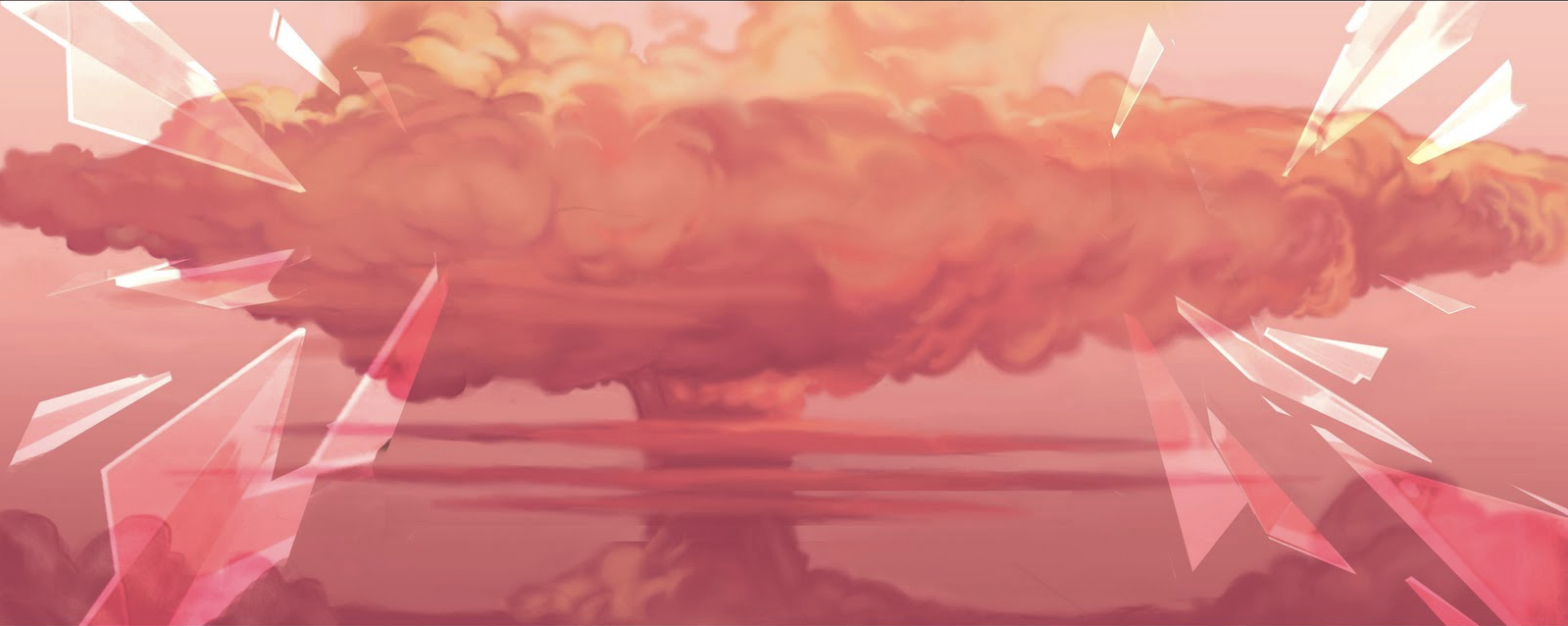 And boom
And boom 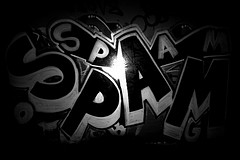 The regulation of commercial speech on social media sites continues to increase. In late March, a federal court in California held that Facebook postings fit within the definition of "commercial electronic mail message" under the Controlling the Assault of Non-Solicited
Pornography and Marketing Act ("CAN-SPAM Act;"
The regulation of commercial speech on social media sites continues to increase. In late March, a federal court in California held that Facebook postings fit within the definition of "commercial electronic mail message" under the Controlling the Assault of Non-Solicited
Pornography and Marketing Act ("CAN-SPAM Act;" 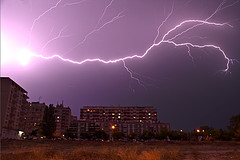 Two legal developments in Nevada and Colorado last week make Righthaven (previous post
Two legal developments in Nevada and Colorado last week make Righthaven (previous post  I'm excited to welcome Jeff Hermes, the Citizen Media Law Project's new Assistant Director.
I'm excited to welcome Jeff Hermes, the Citizen Media Law Project's new Assistant Director.  Strategic lawsuits against public participation, or SLAPPs, are one of the most bullying types of litigation out there. But while the majority of US states have enacted special
Strategic lawsuits against public participation, or SLAPPs, are one of the most bullying types of litigation out there. But while the majority of US states have enacted special  Any customer can have a car painted any colour that he wants so long as it is black. - Henry Ford
Any customer can have a car painted any colour that he wants so long as it is black. - Henry Ford
 A few days ago, I attended oral arguments before the First Circuit Court of Appeals in the case of Joel Tenenbaum, a graduate student being sued by various record labels for sharing music files via a peer-to-peer service over the Internet (Sony v. Tenenbaum,
A few days ago, I attended oral arguments before the First Circuit Court of Appeals in the case of Joel Tenenbaum, a graduate student being sued by various record labels for sharing music files via a peer-to-peer service over the Internet (Sony v. Tenenbaum,  I've been writing about impending British libel reform for almost two years now, putting a post together every time something happens to bring the United Kingdom closer to fixing its quite-literally-backwards defamation laws. "Ooo, the High Court has tossed a textbook libel tourism case," I cheered in
I've been writing about impending British libel reform for almost two years now, putting a post together every time something happens to bring the United Kingdom closer to fixing its quite-literally-backwards defamation laws. "Ooo, the High Court has tossed a textbook libel tourism case," I cheered in 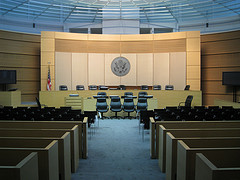 The
The 

